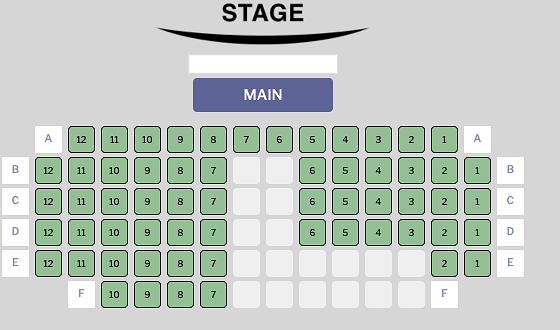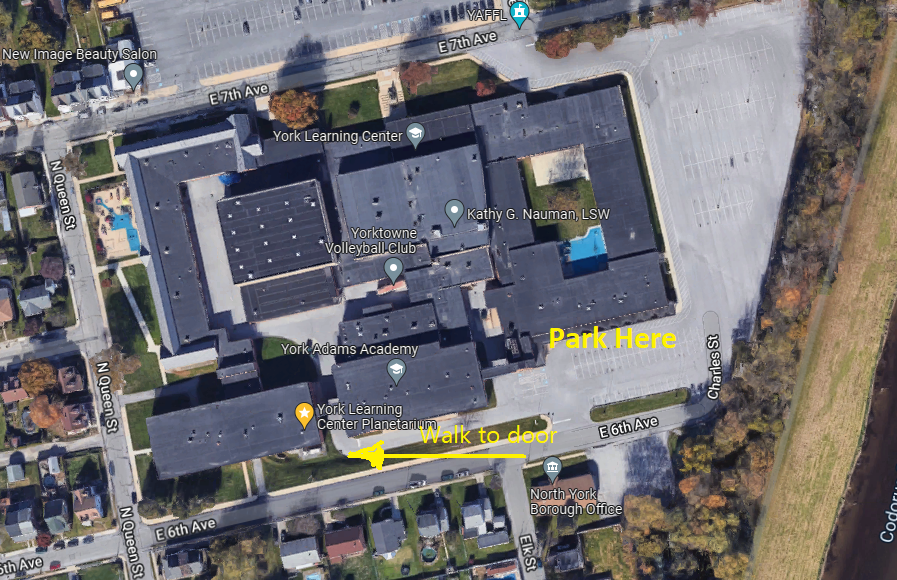YLC Planetarium Childrens Shows
The York County Astronomical Society, celebrating 19 years offering planetarium programs to the public, now offering Saturday afternoon and evening programs at the York Learning Center Planetarium.
Saturday, September 6, 2025
- 2:00PM - One World, One Sky: Big Bird’s Adventure (pre-K to 1st grade)
- 2:40PM - StarWatch
- 3:20PM - Max Goes To The Moon (K to 2nd grade)
The planetarium is located in the York Learning Center at 301 East 6th Avenue, York PA. Admission is $4.00 for adults, $3.00 for children and seniors. Admission to any second or third show is $1.00 each. Cash and most credit and debit cards are accepted.
Private show reservations are available for $40 for a 45 minute program for up to 60 people.
In person ticket sales start at 1:30pm the day of the show.
Online ticket sales are available
Cur8.com is hosting a ticket sales site for our programs until 2 hours before showtime. The site charges a non-refundable fee of about $1.25 per ticket and you are able to reserve a seat in the planetarium. Because of the pricing model of Cur8.com, ticket purchases are for the 2:00pm, 2:40pm, and 3:20pm group of shows.
Please be curtious and not leave empty seats between groups.
 Click here to purchase afternoon online tickets
Click here to purchase afternoon online tickets
You do not need to print the tickets, just present photo identification.
StarWatch
Learn how to find the planets and constellations that are visible in York’s night sky. Become a star watcher by exploring the current night sky, locate visible planets and constellations, and enjoy some sky lore. Receive a star map and get answers to questions such as:
* What can be seen with a telescope tonight?
* How do I find the North Star?
* Is there really a bear in the sky?
* Why do stars have different colors?
* What are the names of the brightest stars?
* Why does Jupiter have different colored clouds?
One World, One Sky
Elmo and Big Bird live in the United States and Hu Hu Zhu lives far away in China, but they discovered that they still see the same stars at night! The word for star in Chinese is “xing xing” (pronounced sing sing). How many “xing xing” do you see in this sky? When Elmo and Hu Hu Zhu “travel” to the moon, they discover some basic but surprising scientific facts. For example, they can’t fly a kite there because there is no wind. The fuzzy friends then excitedly realize that children like to fly kites in both China and the United States!
Max Goes to the Moon
In this children’s planetarium program, Max (the dog) and a young girl named Tori take the first trip to the Moon since the Apollo era. Along the way, the story sets the stage for the topics including “Phases of the Moon,” “Wings in Space?”, and “Frisbees and Curve Balls on the Moon” - all thoughtfully explained so that grownups and children can learn together about science. Toward the end, Max and Tori’s trip proves so inspiring to people back on Earth that all the nations of the world come together to build a great Moon colony from which “the beautiful views of Earth from the Moon made everyone realize that we all share a small and precious planet.”

The Planetarium wishes to recognize and thank the British Fulldome Institute for programming support.
